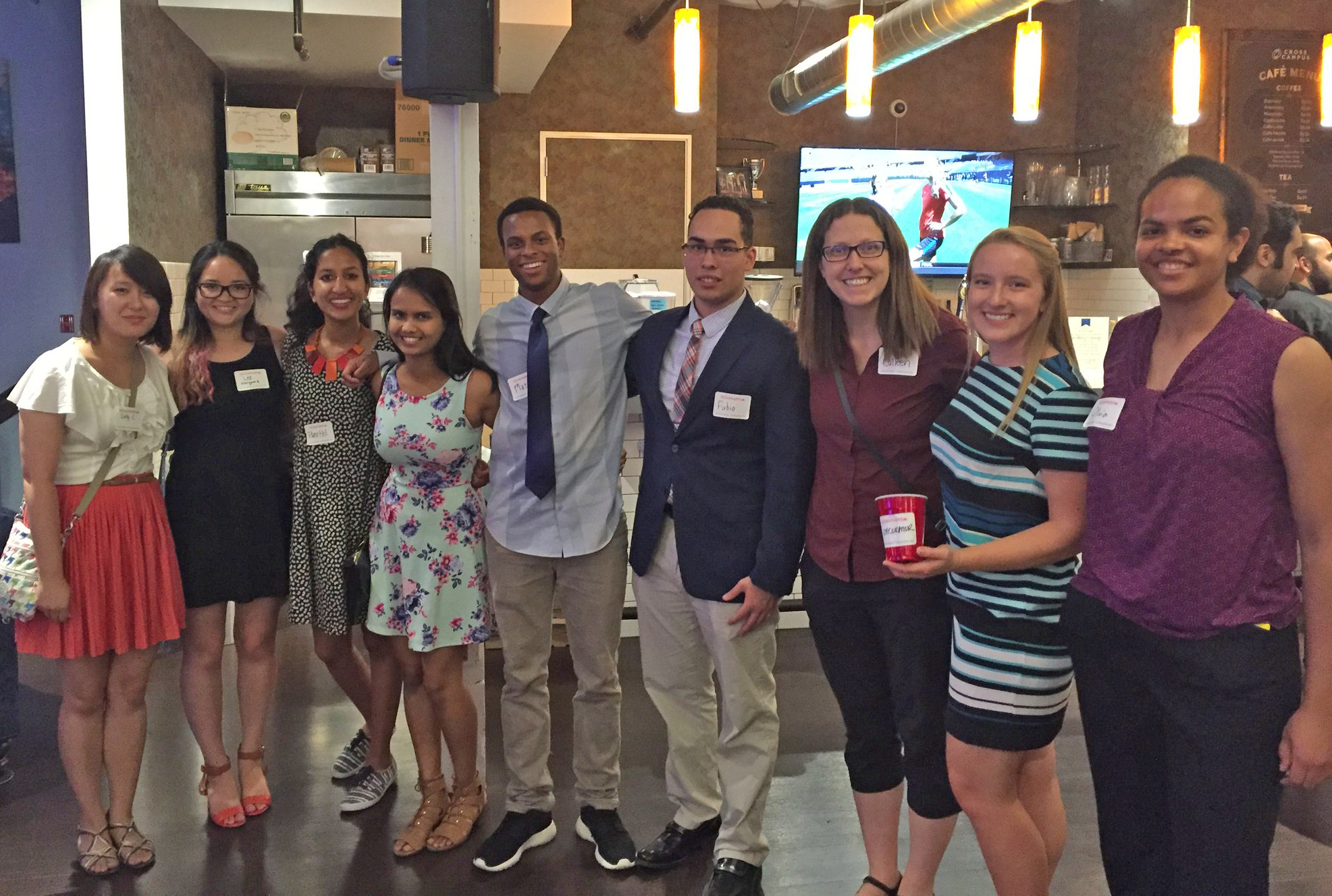Summer 2021
2021 Projects

LateNight
Sydney Riley (HMC '24) envisioned, researched, and built LateNight, a food-finding assistant that specializes in finding food now, whenever that might be! Taking into account hours, driving distance, and food preferences, LateNight answers the question that many of us find ourselves asking late at night... .
Sydney's LateNight pitch.
All About PC
Cecilia Li (HMC '24) was inspired from her own PC-building experience to create a support site, AllAboutPC, which provides guidance to those new to game-PC building. Filling a gap between part-picking sites (very mature, but requiring expertise) and general-purpose PC information (unfocused, especially for would-be builders), AllAboutPC invites, informs, and encourages everyone interested in creating a computer from scratch.
Cecilia's AllAboutPC pitch.
FindUsFood
Kobe Lin (HMC '23) is the designer and creator of FindUsFood, an app that smooths the process of deciding where to go to eat -- as a group. The interface takes collections of preferences from each group member, and then combines the results from familiar APIs into recommendations aligned with the group as a whole. The resulting choices are presented for group members to discuss, rate, and decide.
Kobe's FindUsFood pitch.
Scrapbook
Amy Liu(HMC '24) surveys our (overbusy) social-media landscape and finds a place for thoughtful engagement through shared prompts. Scrapbook, social media's next generation, realizes this vision.
Amy's Scrapbook pitch.
Evergreen
Mo Kyn and Htoo Naing (HMC '24) are the designers and developers of Evergreen, an app that overlapped with Summer Start-up in its technologies (React), but realized a vision co-created by Htoo and Mo and the CA Urban Forests Council. Their app engages elementary-age students with "their own trees" through educational games, journal entries, and photos to keep track of "my tree." This project will continue into the fall, as well.
Htoo and Mo's Evergreen pitch.Link to the Evergreen prototoype
Summer 2018
2018 Projects

SquadUp
Rakia Segev HMC ‘21, Ke Jin HMC ‘21, Brittany Wang HMC ‘19, and Shivam Malpani HMC ‘21 are the creators of the decision making web app that addresses the issue of group decisions by taking in an entire group’s preferences before generating choices for group members to discuss and rate.
Visit the SquadUp Progressive Web App!
Multi-Sig-Crypto
Multi-Sig-Crypto is the simplest, most secure approach to creating, managing, and protecting currency accounts. It supports Bitcoin, Etherium, and Lightcoin.
Try Multi-Sig-CryptoSummer 2017
2017 Projects

Team inDANGERed
Sol Cruz HMC ‘20, Alberto Garcia HMC ‘20, Julianne Lin HMC ‘20, and Anya Wallace, HMC ‘20 were “Team inDANGERed.” They created an infinite side-scrolling game in which a user – perhaps a student – plays the role of an animal, such as a narwhal or a leopard. Both through gameplay and intermissions, the user learns the current conditions and situation with respect to these endangered animals. Beyond individuals, possible audiences include teachers, museums, conservancy organizations, and educational institutions formal and informal. The team presented at the two HMCEN events in the Bay Area in August ’17.
Learn more about "Team inDANGERed"!
SuiteLife
Cole Kurashige HMC ‘20, Giselle Serate HMC ‘20, and Jennifer Zhu HMC ‘20, created “SuiteLife,” an application that allows students, young professionals, or any other cohabitating individuals to track and account for their shared expenses. Inspired by the sharing that happens within suites at colleges and universities, SuiteLife provides users direct control over the “microeconomies” to which they belong. Smooth, multiplatform interfaces and adaptable accounting enable any suite to ensure fairness and build trust and confidence with respect to the food and other consumables they share. As with the other two groups, this team presented at the two HMCEN events in the Bay Area in August ’17.
Learn more about SuiteLife!
YumNum
Jay Chung CMC ‘19, Joshua Guggenheim CMC ‘19, and Julius Lauw HMC ‘19, created “YumNum,” an application that enabled groups to coordinate on-line decision making. A motivating scenario was a group using Yelp to search for restaurants: the returned results list may lead to more contention than cooperation. YumNum converted such a results list into individual decks of cards that users judged individually – the application then displays the summary consensus from those individual responses. Although restaurant-choice was the original app, the idea applies to any group decision-making when interacting with online information sources.

2017 Summer Start-Up Teams, presenting to fellow researchers at HMC

2016 Summer Start-Up Teams, Pasadena Pitch Competition (Congrats, Vanessa!)
Learn more about 2016's projects.